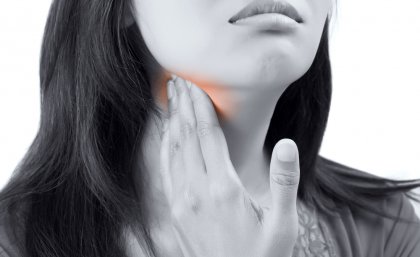
Head and neck cancer is perhaps the most personal of cancers, affecting the basic functions of eating and speaking, and often impacting facial appearance.
Ahead of World Head and Neck Cancer Day on 27 July, University of Queensland School of Dentistry researcher Kelsey Pateman wants to turn the spotlight to the psychological and social care needs of survivors.
“One of the reasons this is becoming more important is actually because of a positive factor – the survival rate for head and neck cancers has improved,” says Ms Pateman.
“People are living longer after undergoing treatment and there are greater numbers of survivors in the general population.
“However, a common thread when you speak to people who have survived, or are dealing with head and neck cancer, is they feel quite isolated and they don’t tend to talk about their experiences.
“I’d like to increase awareness in the community, both about the challenges survivors encounter and the gaps in funding they face.”
Head and neck cancers and the accompanying radiotherapy treatment can result in pronounced physical impacts, including loss of teeth, loss of taste, mouth sores, changes in saliva operations, and difficulty speaking, chewing and swallowing.
In some cases, partial or total removal of the tongue, mandible (lower jaw), maxilla (upper jaw) or larynx may be necessary.
A heavy financial burden can also fall on survivors, who face elevated dental care costs post-procedure.
Ms Pateman is currently completing her PhD and has published several research papers on head and neck cancers, identifying the first six to 12 months post-treatment as “critical”.
“One aspect not often considered is the number of 30 to 40-year-olds affected,” Ms Pateman said.
“They may have to live 40 years or more with the lasting effects of head and neck cancer treatment.
“That means there is an amplified necessity to return to work, care for children of their own, or even be responsible for ageing relatives, while simultaneously taking care of themselves.
“The impact can be much greater for people in that age bracket.”
Brisbane’s Princess Alexandra Hospital will provide free head and neck cancer screening on July 27, while Cancer Council Queensland will host the forum ‘Living with Head and Neck Cancer’ on July 23 at its Fortitude Valley headquarters.
Media: Kelsey Pateman, k.pateman@uq.edu.au, +617 3871 0528; Robert Burgin at UQ Communications, r.burgin@uq.edu.au, +617 3346 3035, +61 448 410 364.




